April 21, 2022
BEIJING – Behind a secondhand shop in Guangzhou, Guangdong province, is the story of a man who made what many may consider an astonishing life choice, Ye Zizhen reports.
From Wu Kaisi’s appearance in the workplace-an expansive mustache, long hair and wearing a T-shirt and shorts-you might never guess that he has what it takes to be a lawyer.
Wu, born in 1995 and originally from Shanxi province, grew up in a family that had rather high career expectations for him, and in 2016, with a bachelor’s degree under his belt from the law school of South China University of Technology in Guangzhou, Guangdong province, he seemed to be well and truly on the path to fulfilling those dreams.
But somewhere along the way, he discovered what some consider as junk, and he had to decide on what career path he would follow. Junk won the day.
The junk in question is the plethora of secondhand objects he sells in his shop in the Panyu district of Guangzhou. There are more than 100,000 items he has collected and bought from both home and abroad.
“Others may not understand the pleasure and excitement I find in digging out secondhand objects, but in doing so I have found a meaning for my life,” Wu says.
After graduation from college six years ago, he chose not to work in the legal sector, but turned into satisfying his real passion-collecting secondhand stuff-and then opened a store to make a living from it.
You name it, and Wu seems to have it: a toilet, a spittoon and a monument that once marked a grave, being among some of the things on offer.
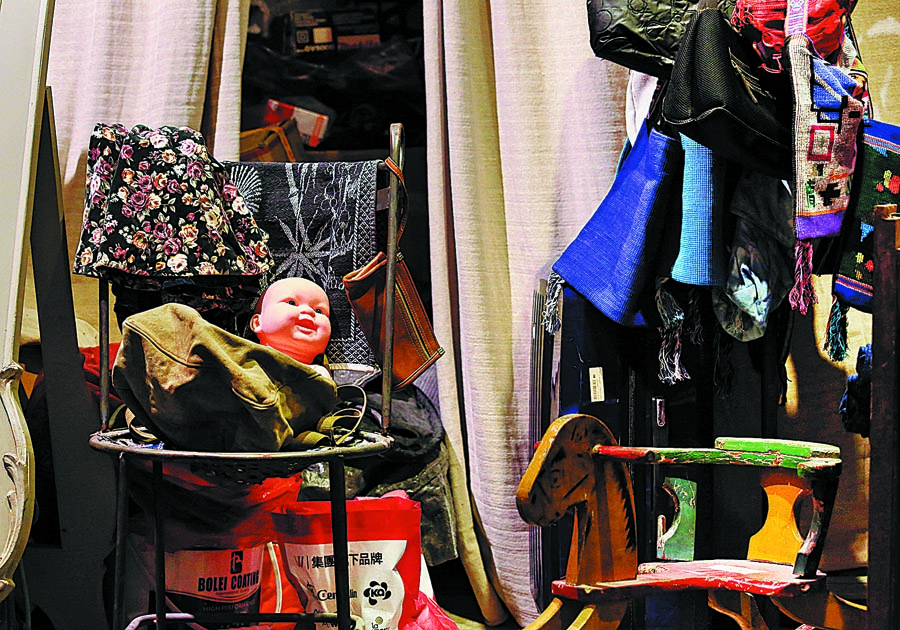
Collector Wu Kaisi runs a secondhand store in Guangzhou, Guangdong province, displaying and selling some 100,000 items from both home and abroad. He interacts with visitors, who often like to take pictures of his collection. [PHOTO BY ZHENG ERQI/CHINA DAILY]
The first time he went to a flea market was in Guilin, Guangxi Zhuang autonomous region, in 2014, when he was a college student, where he spent 5 jiao (less than a US cent) on a wine bottle, he says.
It was a trip to the United States that made him realize the prosperity of the secondhand market. In 2015, from May to September, he traveled to more than 20 cities in the US, and visited many flea markets and secondhand shops. He says that he didn’t spend a cent on accommodation, sleeping in parks, friends’ homes or on university campuses.
“I found it easy to get information about flea markets in the US, and when visiting those places, I bought many things I needed, such as clothing and shampoo,” recalls Wu, 27.
Wu, born into a common, working-class family, has been following a thrifty lifestyle since childhood.
After returning from the US, he says, the only thing he has bought new has been his underwear, and that he has spent many hours scouring flea markets.
For three whole weeks, he had conducted intensive research to find 12 such markets, including an antique market on Guangzhou’s Wenchang North Road, a market selling old books on Haizhu Road, a market selling secondhand electronic devices in Baiyun district and one selling groceries in Liwan district.
Once he knew their locations, he says, he began visiting them almost every day.
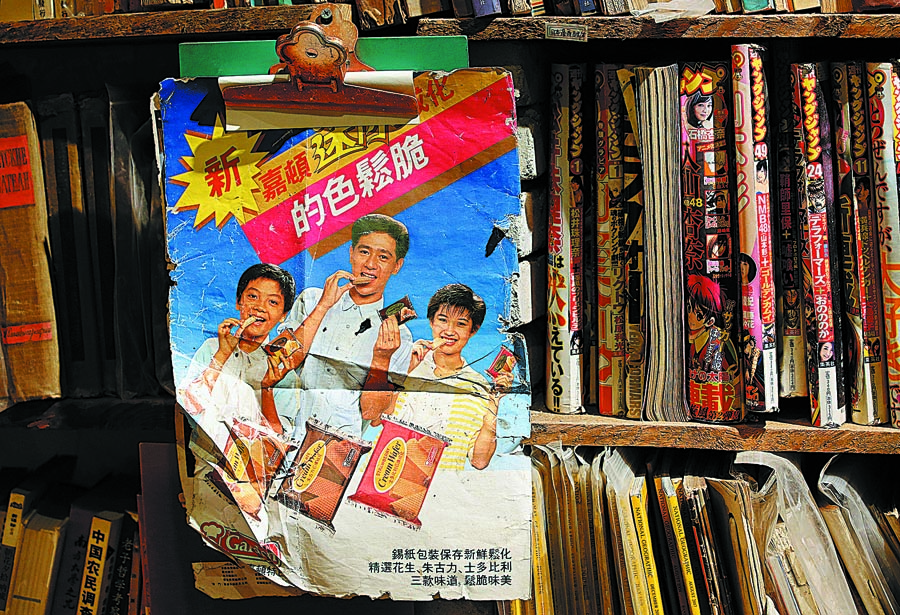
Collector Wu Kaisi runs a secondhand store in Guangzhou, Guangdong province, displaying and selling some 100,000 items from both home and abroad. He interacts with visitors, who often like to take pictures of his collection. [PHOTO BY ZHENG ERQI/CHINA DAILY]
The secondhand industry is highly beneficial to the planet, reducing carbon dioxide emissions by 1.6 million metric tons a year, according to IVL, a Swedish environmental research institute.
However, such a career choice, although profitable, is obviously not ideal for Wu’s traditional parents to accept. Luckily for Wu, his girlfriend Liao Shujun supports him.
“I think he is pretty cool to stick to his dream and I do not feel that it is a waste of his talent,” Liao says.
Wu has no set criteria for selecting what he buys, he says, nor any preference in terms of the material, history or design.
“My decision to buy something is made the instant I see it,” he says, adding that he treasures that “wanting” moment of a secondhand object. “Whether it can be sold at a good price is, ultimately, not that important to me.”
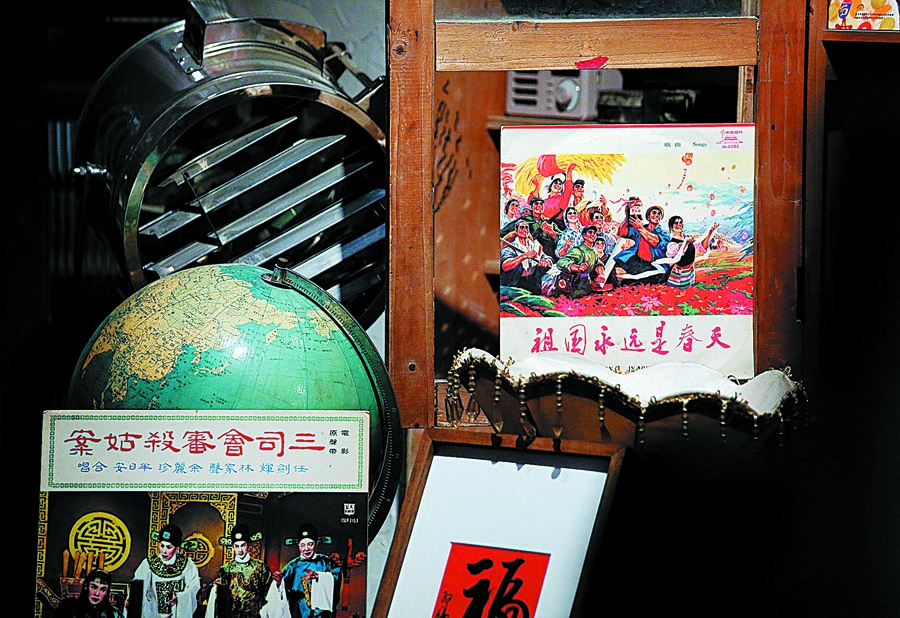
[PHOTO BY ZHENG ERQI/CHINA DAILY]
Among his collection, a packet of handwritten letters that he found at a flea market in Guangzhou has left a deep impression on him.
“I could tell from their content that they belonged to a woman who studied at Sun Yatsen University, graduated in 1986, and later worked in a hotel,” Wu says.
“The letters tell almost her entire life story, from when she was 8 years old to her adulthood.”
After Wu talked about the letters on Xiaohongshu, a social media platform, the family of their author approached him, saying that they had lost the letters by accident and were willing to pay him to get them back.
Wu, understanding the sentimental importance of the letters to the family, was happy to hand them over for free.
In his secondhand shop, there seems to be little logic applied to the way the items are displayed. “I sometimes arrange stuff in a way that is meant to have a visual impact,” he says.
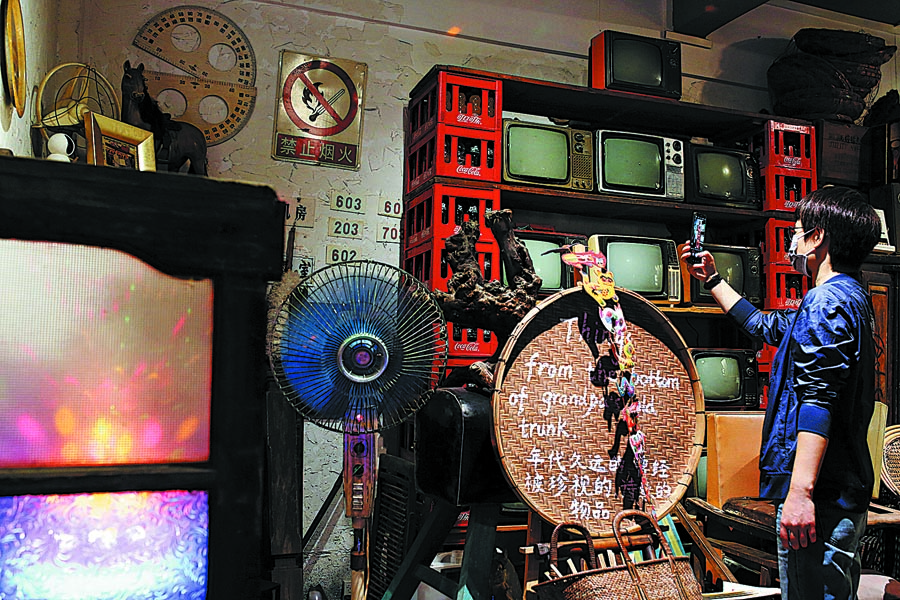
[PHOTO BY ZHENG ERQI/CHINA DAILY]
The first categorization relates to their function, such as whether they are for daily use, handicrafts or artwork; the second is what they are made from, such as paper, metal or cloth; and the third is when they were made, either long ago or in modern times.
Living up to his frugal nature, and as a way of keeping business costs down, he and his girlfriend do any of the renovation or decoration that the shop requires by themselves. He also repairs and cleans all of the objects himself, and has even mastered enough skills to be able to call himself an electrician, a carpenter and a dab hand at mixing cement.
One visitor, with the online username Dr Rong, shared his impression of the shop on Xiaohongshu. He comments: “This shop is a treasure. There are countless items inside, some of which I don’t even know the purpose of…. You can try the old-fashioned typewriter and the sound of it makes you feel as if you’re time-traveling.”
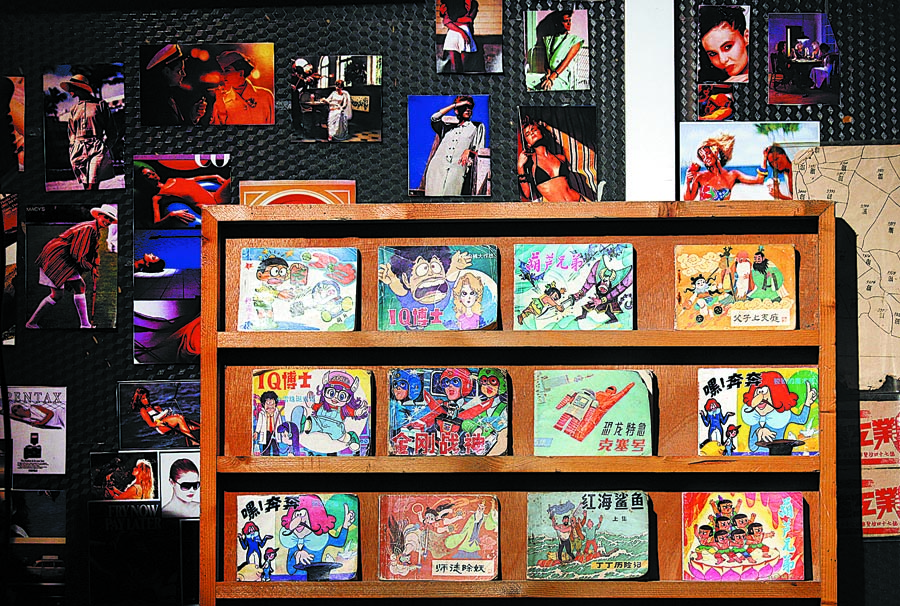
[PHOTO BY ZHENG ERQI/CHINA DAILY]

[PHOTO BY ZHENG ERQI/CHINA DAILY]
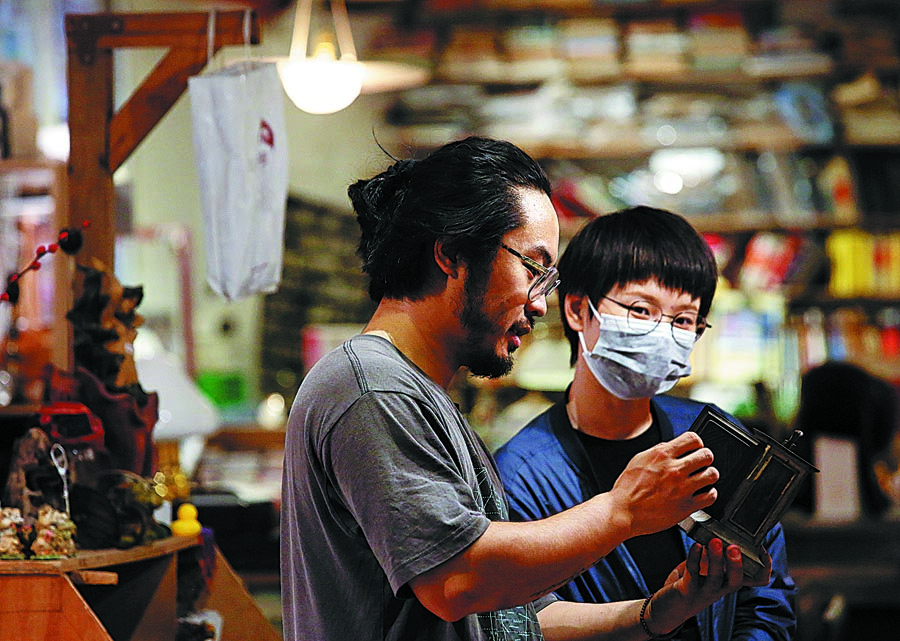
[PHOTO BY ZHENG ERQI/CHINA DAILY]


